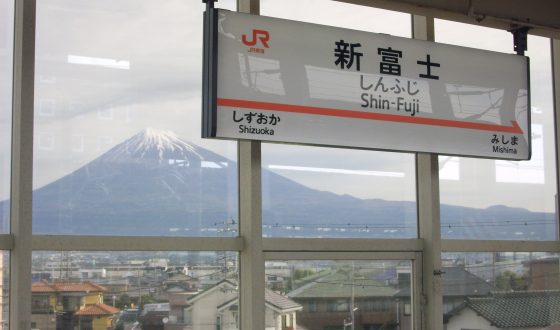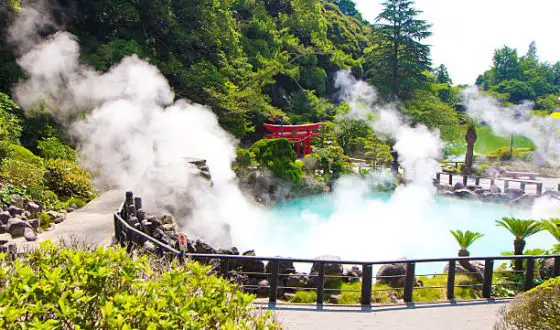Can A Foreigner Buy A House in Japan? A Comprehensive Guide To Buy House in Japan
Do you want to buy a house in Japan or can a foreigner buy a house in Japan? The good news is that regardless of whether you are a resident or not, you can purchase property in the nation. Furthermore, foreigners can now afford houses in Japan more than ever because of the JPY’s current record low value compared to the bulk of other currencies. But the first question that probably springs to mind is: how much do houses cost in Japan? This question will be addressed here.
For the benefit of our international audience, we will publish JPY prices in US dollars. It is critical to recognize that the Japanese real estate market differs from that of other developed countries in some ways. Depopulation, high inheritance taxes, a large percentage of vacant properties, the short average lifespan of the housing stock, desire for/relative convenience of apartments, and preference for/relative newer construction all contribute to lower valuations for second-home residences in particular.
In the Tokyo Metropolitan Area, the typical cost of a used home dropped from $400k in the 1990s to almost half in the early 2000s, and these costs have remained largely consistent. On the other hand, pre-owned so-called Manshon apartments have maintained their worth fairly well (though also flat). As you can see from my most recent selections for Osaka and its environs, it is possible (though perhaps a little challenging) to find decent houses priced around $100k (or 14mn) in Osaka City’s wards close to the main commercial districts, as opposed to a relatively new, 70m2 apartment in one of that may be priced between $200-300k.
Can a foreigner buy a house in Japan?
In essence, yes, it is possible.
Foreigners’ purchases of real estate in Japan have recently increased as a result of the forthcoming 2020 Olympic Games in Tokyo, as well as the decreasing Japanese yen. People from all over the world have rushed to Japan to purchase real estate for personal or financial purposes, including those from Europe, America, Asia, and Oceania.
Foreigners are rapidly buying real estate, including condos, office space, and resort assets in Hokkaido and Central Tokyo.
Real estate in Japan is subject to foreign ownership, even that of Japanese nationals. Also permitted are foreigners with exclusive rights to land in Japan. In contrast to other countries, Japan has no restrictions on foreigners based on their status as permanent residents, Japanese nationality, or type of visa. This indicates that in Japan, foreigners are allowed to own both land and buildings as real estate properties.
Foreigners are free to acquire, sell, and inherit property, and property rights have no time limit. A foreigner’s tax at the moment of purchase is the same as that of a Japanese citizen.
The mere fact that a foreigner owns property in Japan does not guarantee that they will be able to get a visa or permanent residency status. Japan’s parliament passed the Land Use Restriction Bill on March 26, 2021.
In recent years, there has been an increase in foreign land purchases in Hokkaido and remote islands, but the Japanese government is leaning toward imposing limitations on international real estate purchases.
See more:
Choosing between Freehold Property and Leasehold Property
What exactly does leasehold mean?
When you purchase a leasehold property, you become the owner for the duration of the lease term.
Ownership of the property is transferred to the person (or entity) who owns the land after the lease term ends (i.e. the freeholder).
In general, the closer a lease is to its expiration date, the less valuable it becomes. As a result, it will be more challenging to recoup your costs if you decide to sell your lease to a new holder. It could be a smart idea to prolong your lease before selling it to ensure you get the greatest price possible.
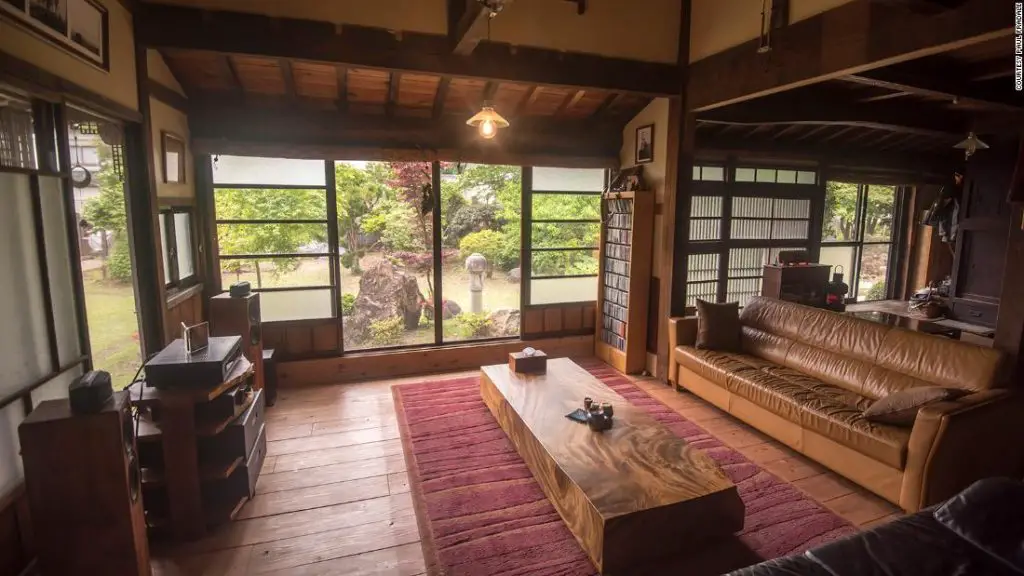
Expats can buy their dream house in Japan’s countryside.
What exactly does the term “freehold” mean?
If you buy a freehold property, you own both the house and the land it stands on (but your mortgage company may still seize it if you don’t keep up repayments).
The term “title absolute” and occasionally “fee simple” are used to describe this form of complete ownership. All property expenses, including building insurance and repairs, are your responsibility.
Unless you share any amenities (such as common gardens) with your neighbors, there are usually no maintenance fees. Most residences are freehold. In some flats, you could be able to share the freehold with your neighbors if you’re a part of a management company.
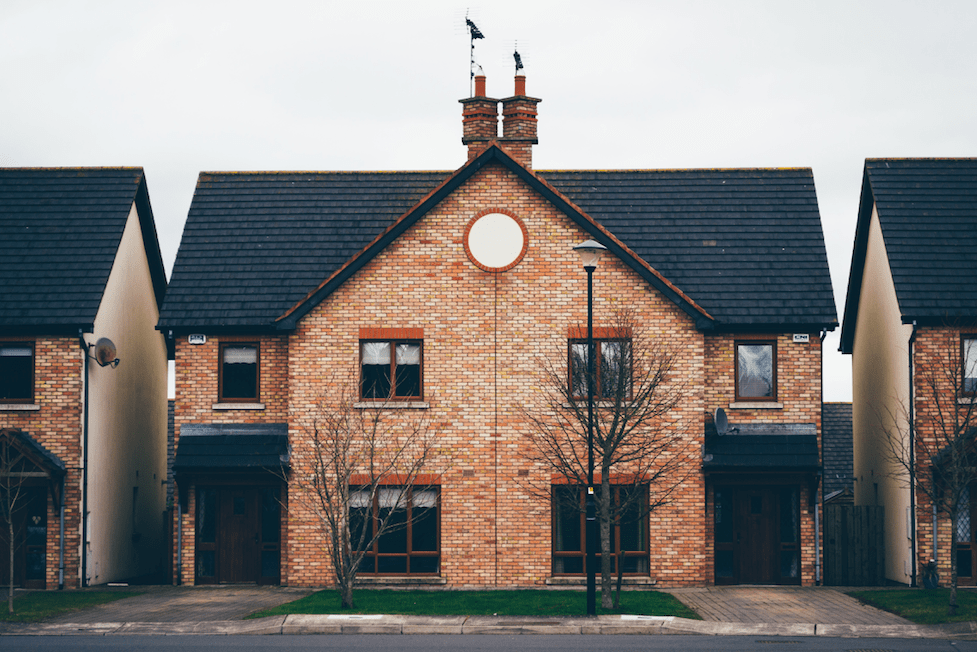
The term “title absolute” and occasionally “fee simple” are used to describe this form of complete ownership. (Source: Internet)
The benefits and drawbacks of freehold versus leasehold ownership
Purchasing both freehold and leasehold properties has benefits and drawbacks.
The Benefits of Purchasing a Freehold Property
Buying a freehold property provides the benefits listed below:
- Full ownership: Having complete ownership of the home and land is possible if you make your mortgage payments on time and/or pay it off.
- There is no cost: The landlord won’t expect you to provide ground rent, service fees, or overhead expenses.
- Flexibility: As long as you abide by the local government’s or council’s regulations, you can do whatever you wish with your land, including raising pets or building modifications.
- No Lease: You won’t need to remember when your lease expires or pay the sometimes-expensive renewal fees.
Drawbacks of purchasing a freehold property
The following are some downsides of purchasing freehold property:
- Expensive: Freehold properties cost more to buy on average because you own the land as well as the building.
- Property type: Because freehold properties are typically houses rather than flats, if you are looking for a flat, this may limit your options.
- Expenditures associated with maintenance: This includes paying for building insurance as well as general maintenance costs for the property.
The Benefits of Acquiring a Leasehold Property
- Buying a leasehold property provides some advantages, such as:
- Cheaper real estate: Compared to freehold properties, leasehold real estate is often less expensive. However, this is because there are risks involved.
- Less responsibility: Building and shared area upkeep, as well as building insurance, are often the freeholder’s responsibilities.
- The drawbacks of buying a leasehold property
Buying a leasehold property offers a number of drawbacks, including the following:
- Leaseholders do not possess exclusive ownership of the building or the land it is built on; instead, they effectively rent from the freeholder.
- Rent and fees: In addition to your mortgage, you’ll have to pay ground rent and service costs, which may rise in the future. If you fail to make these payments, your home may be repossessed.
- Restrictions: You must receive the freeholder’s written consent before making any changes to the property, and you might also be charged additional fees.
- There are no pets: Some leasehold homes prohibit pet ownership.
- No businesses: You may not be permitted to operate a business from home.
- Conveyancing costs are often higher for leasehold homes.
- Selling: Since it’s harder to sell a leasehold property with a shorter lease, you can miss out on benefiting from price gains.
Points to Consider When Buying Real Estate in Japan as a Foreigner
We’d like to give you some pointers on what you should know ahead of time, how the process differs from that of a Japanese citizen, and what to look out for when a foreigner buys real estate in Japan.
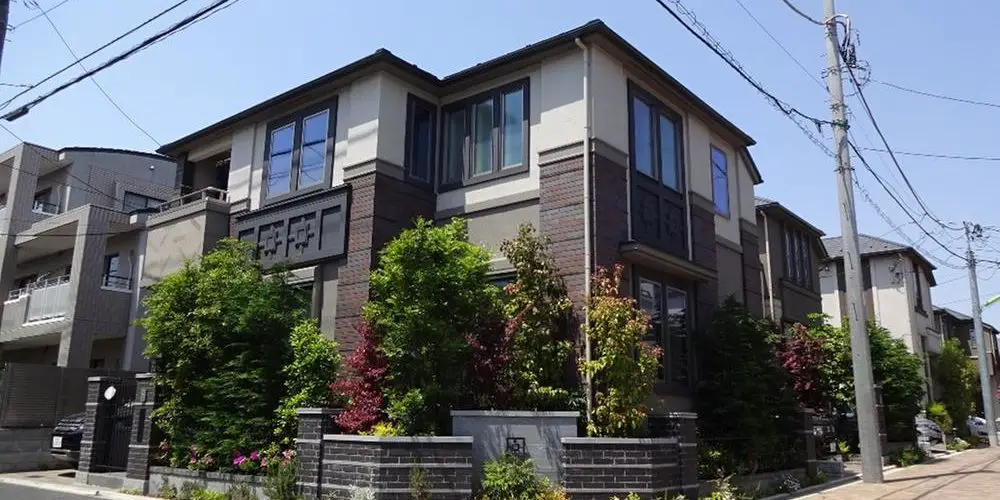
We’d like to give you some pointers on what you should know ahead of time, how the process differs from that of a Japanese citizen. (Source: Internet)
Japan Real Estate Transactions and Real Estate Information
To avoid trade problems, real estate companies generally mediate real estate transactions in Japan. There are very few transactions between people directly. Real estate brokerage businesses and companies that sell real estate post information about properties that are for sale on networks like the REINS (Real Estate Information Network System) or privately-run real estate portal websites. In contrast to other countries, Japan lacks a database that keeps track of all property data and transaction history.
* In the case of a freshly built condominium apartment, it is frequently handled by a contract between a sales company and a buyer before completion, without the need for brokerage by a real estate company.
Search the Internet for real estate information
Anyone can use the Internet to look for property information. To begin, it is best to look for a property based on the desired parameters, such as the property’s acreage, budget, floor plan, and building age.
The leading real estate portal websites in Japan
SUUMO: https://suumo.jp/
HOMES: https://www.homes.co.jp/
athome: https://www.athome.co.jp/
While there are numerous Japanese websites that provide real estate information, such as the ones described above, there are very few that provide extensive real estate information in foreign languages.
Websites that assist clients in other languages
In both English and Chinese, we provide a variety of real estate information about homes in central Tokyo. We offer information about the features of each area in downtown Tokyo, as well as a variety of related information for people thinking about buying real estate. Please stop by and take a look.
Inquire with a real estate company that assists overseas clients
There are thought to be 120,000 real estate businesses in Japan, which is twice as many as there are convenience stores, but only a small number of them support foreign real estate purchases. These businesses are currently only found in central Tokyo and a few other urban areas like Yokohama, Kobe, and Fukuoka.
Buying real estate normally necessitates a very professional and complicated method and contract contents, as well as a very large transaction amount, thus it is critical to seek a trustworthy real estate business to act as an intermediary.
Furthermore, if you are a foreigner, it is recommended that you consult with a real estate company that has experience with transactions involving foreigners, as they differ from those involving Japanese people. Among the differences are the requirement to prepare additional paperwork and the management of international remittances.
Our website also lists real estate firms that offer customer service in foreign languages and are situated outside of Tokyo in the article English-speaking Realtors and Real Estate Professionals in Japan. Come see for yourself, please.
The Flow of Real Estate Purchases in Japan
When you’ve decided on a property to buy, apply for it, negotiate the terms and conditions with the seller, and the transaction will proceed to the contract stage.
We created this comprehensive reference to the main procedures used when purchasing real estate in Japan. This involves understanding how to read property information, understanding legal procedures, critical issues to consider, and acquiring rights.
1. Understanding Real Estate
Transactions and Regulatory Laws in Japan
Japan has highly developed laws controlling real estate and property transactions. There are several laws and guidelines in place to stop issues. Because real estate is an expensive commodity, it is required by law to thoroughly investigate the property’s status, rights relationship, and numerous legal rules to ensure a safe commercial transaction. Additionally, during the contractual processes, a person with the title “Real Estate Transaction Specialist” must be present to explain any pertinent details.
In order to make your investment property competitive and lucrative, we provide suggestions for appealing listing conditions and rent prices that reflect the market.
Non-Japanese purchasing property
In Japan, there are no limits on the ownership of both land and buildings. Foreigners can buy property in Japan regardless of their visa status.
Purchase of Real Estate and Home Loans Expenses
Other fees besides the purchase price of the property include the commission paid to the agent, the ownership registration fee, taxes, and other costs.
2. The Property Lookup
Choosing Locations
We give thorough descriptions of the many residential areas in Central Tokyo, along with maps and images of each location.
Choosing Real Estate
With regard to New/Used Apartments, Condominiums, Investment Properties with Renters, and Buildings for Sale in Central Tokyo and its environs, we offer a plethora of English-language property information.
What to Think About When Purchasing a Home in Japan
1. Purchasing real estate does not provide you a visa.
To begin with, purchasing a home in Japan will NOT help you obtain a visa or permanent residence status. Whether you own property or not, the residence process is the same.
Even on a tourist visa, if you don’t have residency, you can still buy property in Japan, but you won’t have as much time there.
One possibility is to visit Japan regularly or for extended periods of time on tourist visas. This could be a viable alternative for someone looking to retire in Japan for a portion of the year.
Please keep in mind that if you work or earn money while in Japan on a tourist visa, you may be subject to income taxes. If you intend to spend more than three months of the year in Japan, please see an accountant.
2. There is a language barrier.
Despite the fact that there are a lot of foreigners in Japan, your selections will be fairly limited if you don’t understand Japanese, because most sellers don’t speak English. There are cheap properties in Japan for sale all over the internet, but 95% of the greatest deals, in my experience, are only available in Japanese.
To properly communicate their objectives for the property and negotiate the terms, some sellers may even insist that you speak Japanese. Thankfully, there are several of agents who can help you with this, including those who focus on foreigners, although you can expect to pay more for it.
You will benefit greatly from having lived in Japan since you will be able to reach out to your network of friends and coworkers for assistance with any language obstacles you may encounter. Otherwise, you may have to rely on professional interpreters or limit your selections to solely English-speaking real estate companies.
On the subject of language, even with the assistance of a professional Realtor, I would hesitate to advocate purchasing a home in Japan without knowing at least some Japanese. Living outside of Tokyo without any knowledge of the language is challenging enough, but having to take care of your property, deal with taxes and the local government, and integrate yourself into the community for the long term makes it even more challenging.
3. Guidelines for Maintaining Your House
If you buy a vacation property in Japan, you will most likely be gone for extended periods of time. A strategy must be in place if you want to keep the property in good condition, especially given the lengthy and sticky Japanese summer.
Imagine taking a lengthy flight from Australia (or your usual home) to Japan, having a pleasant drink, and putting your feet up… When you sense a foul odor lingering in the air. Drains, especially in the summer, can dry out, resulting in unpleasant odors.
Opening all of the faucets a few times each month will help maintain the drains clear and in good functioning order. Furthermore, to avoid the house getting stagnant, it is essential that all windows and doors be opened on a frequent basis. This is especially crucial for historic timber houses, which are more prone to mold.
But don’t be concerned. There are companies that can accomplish all of this for you while you’re away, but it will have to be factored into your overall budget.
Property prices and rental yields in Tokyo
1. Property Prices
The nationwide residential property price index in Japan increased by 6.9% (6.7% inflation-adjusted) in the year to Q3 2021, a record high for Japan. According to the Land Institute of Japan, this follows year-on-year increases of 3% in 2020, 0.5% in 2019, 2.1% in 2018, and 2.4% in 2017.
House prices grew 1.6% quarter on quarter (0.9% inflation-adjusted). However, prices vary greatly depending on location and property type.
In the Tokyo Metropolitan Area:
- Existing condominium average prices increased by 7.1% year on year through November 2021, to JPY 609,200 (5,334 USD) per square meter (sq. m), following a 4.8% year on year increase in 2020.
- Following a 0.2% fall in 2020, new condominium average prices declined by 3.54% year on year to JPY 871,000 (7,626 USD) per sq. m in November 2021.
- Existing detached house prices increased 10.1% year on year to JPY 38.39 million (336,121 USD).
- Existing detached house prices increased 9.5% year on year to JPY 22.33 million ($ 195,508 USD) in November 2021, following a 2.1% fall in 2020.
2. Rental Yields
Investors in Tokyo expect decreased rental yields from office and residential properties. The estimated rental yield on Class A office space in Tokyo’s Marunouchi and Otemachi districts, as reported by the investors survey conducted by the Japan Real Estate Institute and released in November 2022, was 3.2% in October 2022, down from 3.3% in April.

Since the Institute started compiling figures in 1999, this will be the lowest expected yield. They peaked at 6% in April 1999 before falling below 5% in 2005. Since 2015, expected yields have been about 3%. Toranomon (3.5%), Roppongi (3.6%), Konan (3.7%), and Shibuya (3.6%) had lower expected yields.
The predicted return fell below 4% for the first time ever for the apartment complexes in Tokyo’s Jonan district that are mostly made up of tiny studio apartments. Regional cities also experienced similar drops in anticipated yields.
As of October 2022, the high-end retail market in Ginza was predicted to yield 3.5%, remaining unchanged from April. Since 2015, yields have been in the 3% level. Before falling to 4% in the early part of 2007, they were in the mid-5% range in 2004.
The anticipated yield in Tokyo was 4.5 percent. It had reached as high as 6% in the early 2010s. Kyoto’s projected yield was 5.0%, down from 5.1% in April 2022.
95% of respondents said they want to make new real estate investments, a one-point rise from the April 2022 survey.
The Bank of Japan has continued its monetary easing program, which has kept rates low, even while many countries are seeing rising interest rates. Due to these factors, domestic real estate has remained a desirable investment for both domestic and international institutional investors.
Are Japanese homes worth purchasing?
In Japan, is it really possible to find decent, affordable housing? In Japan, there are certainly a lot of extremely affordable properties to choose from, but they are frequently priced that way for a purpose.
Is it really possible to obtain good, living housing in Japan at a low price? It is true that there are many very cheap properties available in Japan, however they are often cheap for a reason.
Numerous of the dirt-cheap (under $15,000) “akiya” homes highlighted in the media are in rural, sparsely populated areas and need extensive renovations to become habitable once again.
However, the concept that all Japanese dwellings have a 30-year lifespan is also deceptive. It truly depends on the build quality, how well the house has been kept, and the extent of previous modifications. The majority of Japanese people prefer new homes to “used homes,” although many older homes still have many years to live out, especially with a little do-it-yourself maintenance.
There are also many fantastic newer buildings in the $40,000 to $100,000 price bracket that are move-in ready. There are some fantastic deals to be gotten if you’re ready to compromise.
However, many foreigners prefer to buy a house in Japan for this precise reason – to escape the rush and bustle of city life and embrace a quieter, more serene way of life.
As one foreigner who recently purchased his first home put it:
“I love living in the country and being close to the rivers, mountains, and beaches. I’d advise everybody who can to leave the megalithic cities as teleworking is on the rise.”
Buying a property in Japan could be a fantastic investment in future happiness for expats looking for a specific type of lifestyle.
FAQs
1. Is it simple for foreigners to purchase a home in Japan?
Neither citizenship nor a visa for permanent residence are necessary. As opposed to what you would think, the process is actually much simpler than you might think, and both Japanese and non-Japanese buyers must abide by the same laws and legal processes.
2. How difficult is it to purchase a home in Japan?
Foreigners have no legal restrictions when purchasing property in Japan. In reality, the same laws and regulations apply to Japanese and non-Japanese customers. It is not necessary to have Japanese citizenship or residency to purchase a home in Japan.
3. Can a foreigner live in Japan?
Many countries’ citizens can apply for a general working visa to Japan. To obtain such a visa, you must first secure employment with a Japanese company and have them sponsor your application. Working visas are valid for three months to five years.
4. Can you move to Japan if you own property?
In contrast to other countries, Japan has no restrictions on foreigners based on their status as permanent residents, Japanese nationality, or type of visa. This indicates that both land and buildings may be owned by foreigners in Japan as real estate properties.
5. Can I stay in Japan indefinitely?
If a foreign resident lives in Japan for a specific number of years straight and has a certain amount of assets or the capacity to support themselves, they may be given permanent residence.
6. Are houses cheap in Japan?
According to the Organization for Economic Cooperation and Development, homes in Japan are among the most affordable in the world (OECD). However, residents continue to spend 22% of their total income on housing.
Conclusion
Japan is one of the most industrialized nations in APAC, making it a favorite investment destination for global corporations and home purchasers. Foreigners regard Japan as safe, with clear and favorable ownership restrictions.
Not to mention that Japan is incredibly livable. Many people choose to live here permanently or to acquire lifestyle property for holiday or rental purposes. Read on to answer the question: Can a foreigner buy a house in Japan?


